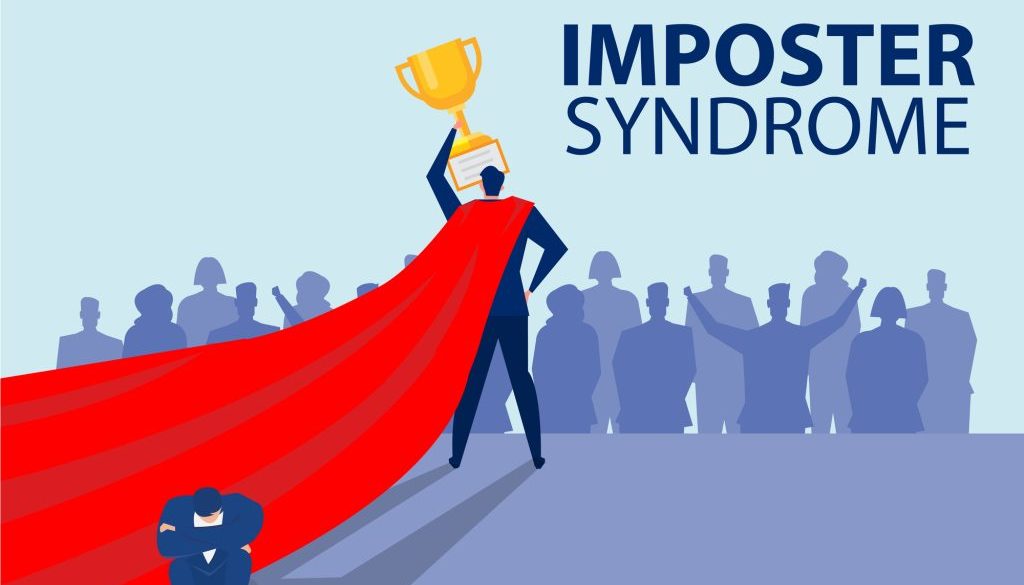Imposter Syndrome in Physicians: Understanding the Causes and Finding Solutions
I had the same dream again. In it, I was called to the Dean’s office and told there was a mistake in the admissions process. They said I didn’t actually meet the qualifications for medical school. They apologized and told me I’d have to pack up my things and reapply after improving my application. I felt embarrassed, disappointed, and a bit relieved. I woke up suddenly, checked my surroundings, and realized I was safely at home. It was still two hours before I needed to get up and head to the clinic to care for patients.
Even though it’s been nearly 30 years since I was admitted to medical school, I still have this recurring dream when I’m really stressed. Intellectually, I know I deserved my admission, did well in medicine, and am a good physician. Yet, there are moments when I doubt myself and think my success was just luck, and that someone will figure it out. For years, I thought I was the only one who felt this way until I mentioned the dream to a colleague. They told me they have similar experiences. It turns out imposter syndrome is very common among physicians.
What is Imposter Syndrome?
Imposter syndrome, imposter phenomenon, or impostorism, is “feelings of uncertainty, inadequacy, and being undeserving of one’s achievements despite evidence to the contrary.” Individuals with imposter syndrome often feel like a fraud and doubt their abilities, attributing their successes to luck rather than competence. Imposter syndrome occurs in 60% of physicians and negatively impacts their self worth.
Why Are Physicians Prone to Imposter Syndrome?
Physicians experience imposter syndrome at higher rates than other U.S. workers. Several factors predispose physicians to imposter syndrome:
- The medical field attracts high-achieving, perfectionist individuals who hold to unrealistic standards.
- Medical training involves constant evaluation, a uniquie cultuter, and being surrounded by other highly accomplished trainees, which can fuel feelings of inadequacy.
- The high-stakes nature of medicine leaves little room for error. Mistakes are viewed as embarrassing character flaws rather than learning opportunities
- Lack of demographic representation in medicine (e.g., for women and minorities) can exacerbate feelings of not belonging
The Impact of Imposter Syndrome on Physicians
- Imposter syndrome can significantly impact physicians’ well-being and practice.
- It is associated with higher rates of burnout, depression, anxiety, and suicidal ideation
- Physicians with imposter syndrome may avoid taking on new challenges, accepting promotions, or learning new skills
- Self-doubt can hinder effective leadership, decision-making, and communication with patients
- Constantly working harder to “prove oneself” leads to exhaustion and inability to perform optimally
Overcoming Imposter Syndrome: Strategies and Solutions
While imposter syndrome is common, it can be managed with the right strategies:
- Recognize imposter feelings when they surface. Perform honest self-evaluation and assessments like the Clance Imposter Phenomenon Scale.
- Collect objective evidence of your accomplishments, skills, and positive feedback to combat self-doubt. Revisit this evidence regularly.
- Replace negative thoughts and thought distortions with more balanced self-talk. Reframe mistakes as learning opportunities.
- Cultivate a growth mindset. Embrace challenges as chances to learn rather than threats to avoid. Recognize that skills can be developed with practice.
- Reach out for support from colleagues, mentors, coaches, or therapists. Vulnerability and honesty help normalize self doubt.
- Institutions should openly discuss imposter syndrome in medical education and foster a collaborative culture where mistakes are part of the learning process.
The Power of Physician Coaching
Professional coaching is a valuable tool for physicians to manage imposter syndrome and build confidence. A skilled coach serves as an objective supporter who can help physicians:
- Process their doubts and insecurities in a safe, non-judgmental space
- Identify and change limiting beliefs and behaviors that fuel imposter syndrome
- Set achievable goals and create action plans to build mastery and self-efficacy
- Develop a growth mindset and reframe challenges as opportunities
- Celebrate wins and focus on the journey rather than the destination.
Coaching can be genuinely transformative for physicians at any stage of their careers. It allows them to realize their full potential as practitioners, leaders, and people. Contact The Developing Doctor today to learn more about how physician coaching can help you thrive. Our team of certified physician coaches is ready to support you in overcoming imposter syndrome and rediscovering the joy in medicine.





